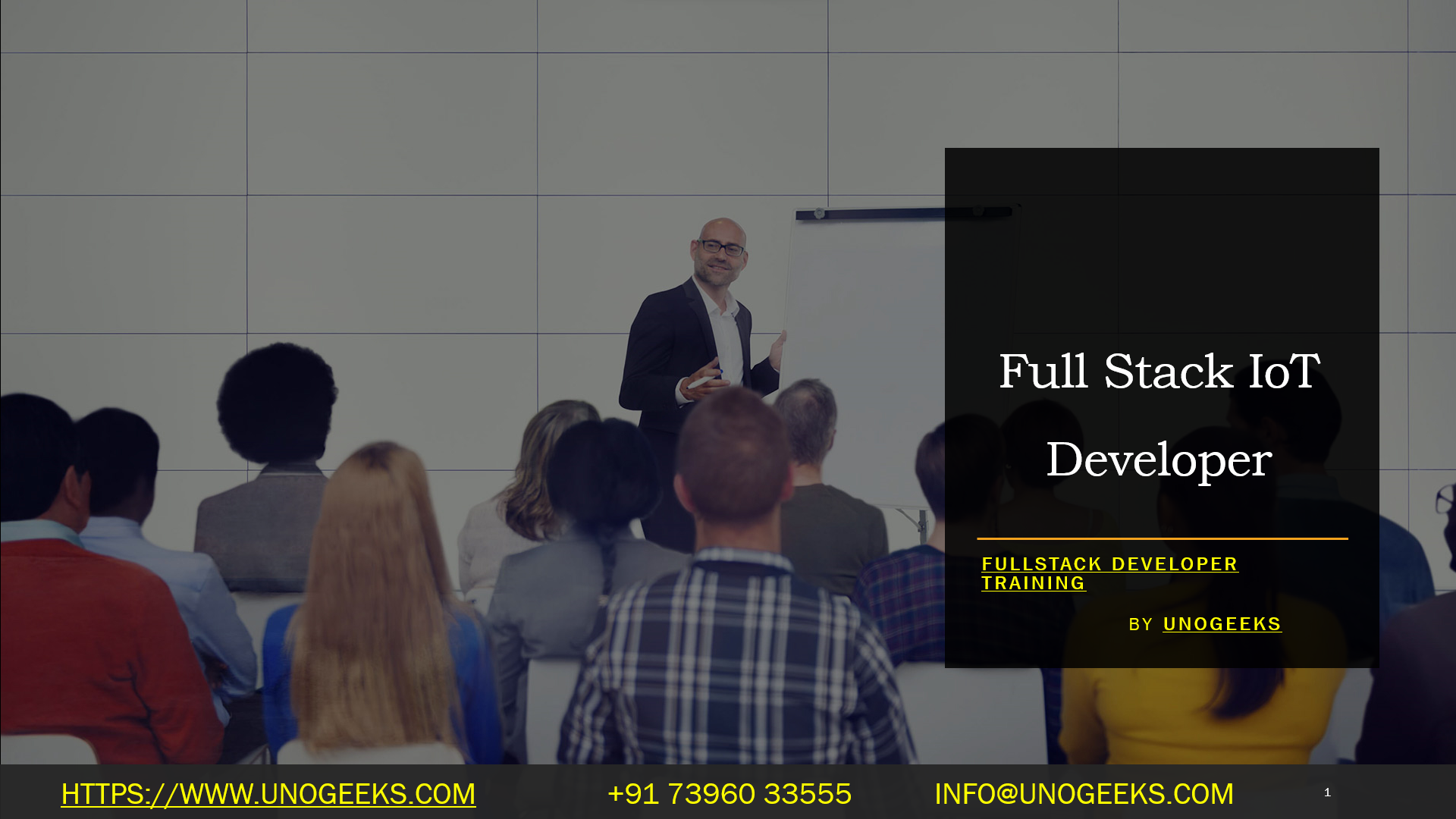Full Stack IoT Developer
Full Stack IoT Developer
A Full Stack IoT (Internet of Things) Developer is a professional with expertise in developing end-to-end IoT solutions. IoT involves connecting physical devices, sensors, and objects to the internet, enabling them to collect and exchange data. A Full Stack IoT Developer is responsible for designing, building, and maintaining both the hardware and software components of IoT systems. Here’s a breakdown of their key responsibilities and skills:
Hardware Development:
- Sensor Integration: Full Stack IoT Developers work with various sensors, actuators, and hardware components to collect data from the physical world. They integrate sensors such as temperature sensors, motion detectors, GPS modules, and more into IoT devices.
- Microcontrollers and Embedded Systems: They have expertise in working with microcontrollers (e.g., Arduino, Raspberry Pi) and embedded systems to control IoT devices and process data at the edge.
- Hardware Prototyping: Full Stack IoT Developers may design and prototype custom hardware solutions, including PCB (Printed Circuit Board) design, to meet the specific requirements of IoT projects.
- Communication Protocols: Understanding and implementing communication protocols such as MQTT, CoAP, HTTP, LoRaWAN, and Bluetooth for data transmission between IoT devices and the cloud.
- Power Management: Efficient power management is crucial for IoT devices, and Full Stack IoT Developers optimize power consumption to extend device battery life.
Back-End Development:
- Cloud Services: Building the back-end infrastructure of IoT applications on cloud platforms like AWS IoT, Azure IoT, or Google Cloud IoT Core. This includes setting up data storage, data processing, and device management.
- Data Processing: Processing and analyzing the large volumes of data generated by IoT devices. This may involve data transformation, filtering, and aggregation to derive meaningful insights.
- IoT Device Management: Implementing device management functionalities to remotely monitor, configure, and update IoT devices.
- Security: Ensuring the security of IoT solutions, including device authentication, data encryption, and protection against cyber threats.
- API Development: Creating APIs for IoT devices to send and receive data from the cloud or other devices. This includes defining data formats and endpoints for communication.
Front-End Development:
- User Interfaces: Designing and developing web or mobile interfaces to visualize and interact with IoT data. This includes creating dashboards, real-time charts, and notifications.
- Mobile App Development: Building mobile applications for controlling and monitoring IoT devices from smartphones or tablets.
Integration and Testing:
- Integration: Full Stack IoT Developers ensure seamless integration between hardware, back-end, and front-end components of IoT solutions.
- Testing and Quality Assurance: Rigorous testing, including unit testing, integration testing, and end-to-end testing, to ensure the reliability and functionality of the entire IoT system.
Deployment and Maintenance:
- Deployment: Deploying IoT solutions to production environments and ensuring scalability and reliability.
- Maintenance: Ongoing maintenance, updates, and troubleshooting of IoT systems to keep them operational.
IoT Protocols and Standards:
- Understanding IoT Protocols: Familiarity with IoT-specific protocols and standards such as MQTT, CoAP, Zigbee, Bluetooth, LoRa, and others.
Full Stack Developer Training Demo Day 1 Video:
Conclusion:
Unogeeks is the No.1 IT Training Institute for Full Stack Developer Training. Anyone Disagree? Please drop in a comment
You can check out our other latest blogs on Full Stack Developer Training here – Full Stack Developer Blogs
Please check out our Best In Class Full Stack Developer Training Details here – Full Stack Developer Training

———————————-
For Training inquiries:
Call/Whatsapp: +91 73960 33555
Mail us at: info@unogeeks.com
Our Website ➜ https://unogeeks.com
Follow us:
Instagram: https://www.instagram.com/unogeeks
Facebook:https://www.facebook.com/UnogeeksSoftwareTrainingInstitute
Twitter: https://twitter.com/unogeeks
